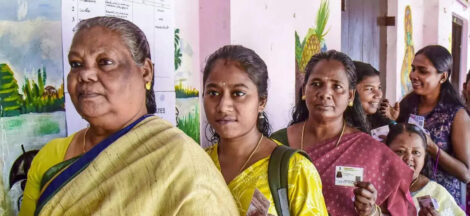By Dr. Arun Mitra
The International Day of Peace was established in 1981 by the United Nations General Assembly. Two decades later, in 2001, the General Assembly unanimously voted to designate the Day as a period of non-violence and cease-fire. The United Nations invites all nations and people to honour a cessation of hostilities during the Day, and to otherwise commemorate the Day through education and public awareness on issues related to peace.
War is one of the most serious threats to public health with catastrophic effects on infrastructure and environment and accounts for more deaths and disability than many major diseases combined. It destroys families, communities and sometimes whole cultures. It channels limited resources away from health and other social needs.
In the past, it was mainly the combatants, who suffered during war time. But now the percentage of civilian casualties has increased manifold. During war situations large number of population is shifted to refugee camps. Living in a refugee camp is a very unfortunate event to happen; family life is disturbed, unhygienic conditions in the camps cause various illnesses; children lose their education and nutrition suffers. Women and children are the worst sufferers during such conditions. The death of near and dear causes stress particularly in the minds of children who develop post-traumatic stress disorder with lifelong implications.
This scenario has become much worse after the entry of nuclear weapons on the scene. These are weapons of catastrophic destruction. It has been proved by the destruction they caused at Hiroshima and Nagasaki in Japan on 6th and 9th August 1945, where over 200,000 people died and many more were injured. There was loss of all types of life and immense damage to property. The damage happened as a result of strong light, powerful blast, intense heat and radiations which emitted as a result of nuclear fallout. Radiations caused burns and bleeding leading to miserable death. Those who survived developed diseases related to chronic effect of radiations including cancers and anomalies in the new born children. There are reports of genetic disorders as a result of radiation exposure.
Unfortunately the world does not seem to have learnt the lesson. The Military Industrial Complex (MIC) is promoting arms race for their benefit. The number of nuclear armed countries has increased to nine since then. There is increasing expenditure on arms by various countries. The developing countries with poor economy, low Human Development Index (HDI) and Hunger Index are the worst affected. India is the biggest buyer of arms with equivalent arms spending by Pakistan. This expenditure is causing serious resource crunch on health and education.
Asia is the biggest sufferer in the present times. There are several hotspots in the continent. Out of nine nuclear armed countries globally the majority are in Asia – India, China, Pakistan, North Korea and Israel; with another Eurasian nuclear-armed state, Russia. The continent has suffered the effects of nuclear weapons in Japan in 1945, as well as from nuclear testing in many locations. Parts of the continent, including Iraq and Syria, have suffered the effects of depleted uranium. There is evidence of serious health effects on the population living around uranium mines. The ongoing conflicts, particularly in the Middle East, the wars in Syria and Yemen, and perpetual tension between India and Pakistan are serious threats to peace in the region.
Concerned with the welfare of the people the doctors from North and South Asian affiliated of International Physicians for the Prevention of Nuclear War (IPPNW) met together in Ulaanbaatar, the capital of Mongolia, on 13-14 September and expressed deep concern at the ongoing conflicts in different parts of the world. These conflicts can at any time escalate into larger wars and result in use of nuclear weapons. Any use of nuclear weapons would have catastrophic effect on all life, which could not be effectively addressed. Therefore, these weapons must be eliminated completely.
It is a global heath imperative as well as legal obligation that all nuclear-armed nations eliminate their nuclear arsenals as a matter of great urgency. The UN Treaty on the Prohibition of Nuclear Weapons (TPNW) provides a pathway for all nations to abolish nuclear weapons. All nations should take that path. The joint statement issued appealed that all nuclear armed countries join the TPNW and abolish their nuclear weapons; the proliferation of small arms be checked; all nations engage in mutual dialogue to resolve disputes threatening peace and divert funds from arms to health, education, poverty alleviation, renewable energy and development.
That many countries withstood pressure from the big powers and voted for TPNW in the UN General Assembly is reflection of the explicit desire of the people worldwide. It is time to build a broad movement for peace, health and development. (IPA Service)
The picture is taken from the Internet.
The post Peace Is Imperative For Health appeared first on Newspack by India Press Agency.



